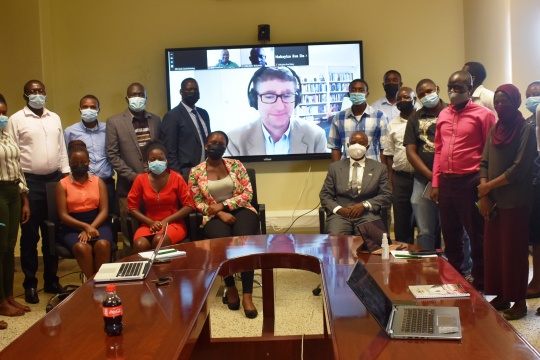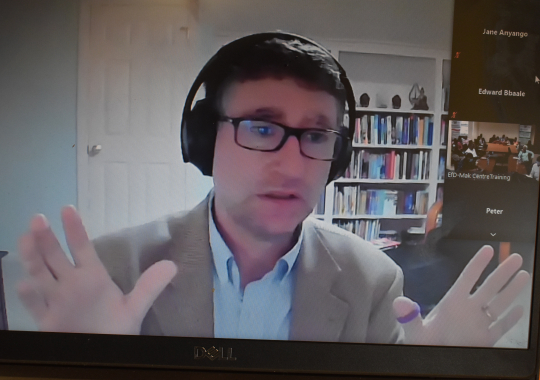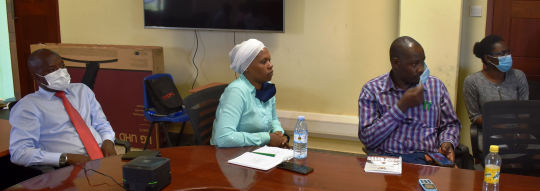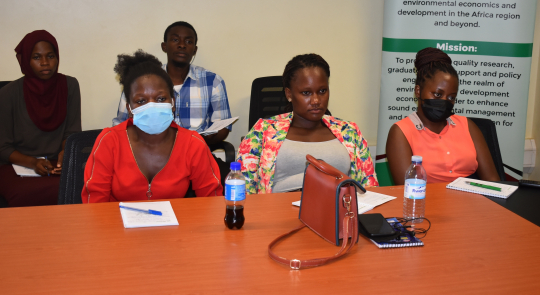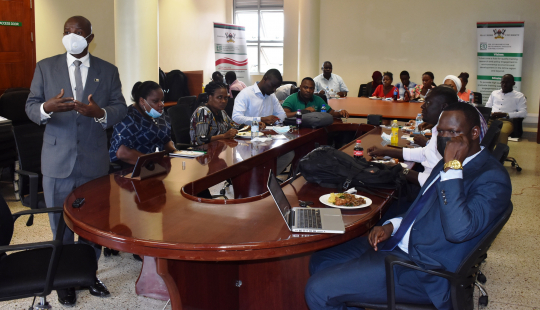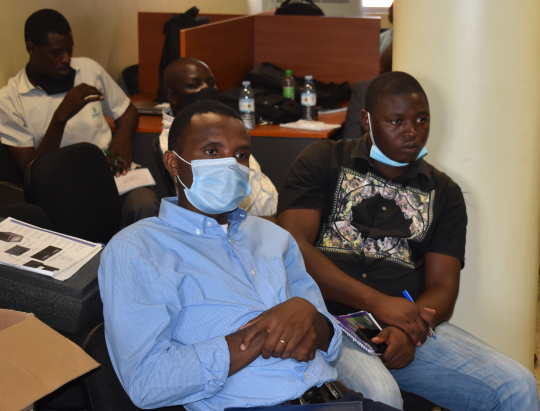Water bills paid too late or not at all are common in many countries. This causes difficulties to maintain water infrastructure and provide water services. However, given the right information, more customers are willing to pay on time. Such information methods were the theme of an EfD Uganda training session at Makerere University Uganda.
Over 40 Makerere University researchers from the School of Economics were trained on new methodologies of information treatment to improving water bills payments. The training was organized and hosted by the EfD Uganda (EfD-Mak) Centre on 14th October 2021.
The seminar was facilitated by Dr. David Fuente from the School of Earth, Ocean, and Environment, University of South Carolina, USA.
David Fuente presented studies conducted in among others Kenya and Ethiopia on the topic “Testing information treatments to improve the financial sustainability of water utilities”.
He said policymakers face the challenge of raising water prices and improving customer payment behavior.
57% are late in Kampala
“Water infrastructure is capital intensive, but largely out of public view. Improving customer awareness of the costs of water supply and sanitation may increase their perception of, ‘fair’ water prices. However, the way you present information matters, and further research is needed,” David Fuente said.
Late payments, customer arrears, are a constant problem in the water and sanitation sector in the Global South which undermines financial stability.
“For example, in South Africa, households owe the municipal governments 40 billion rands (about 4 billion USD). In Kampala Uganda, 57% of the residential customers’ accounts have arrears while in Nairobi Kenya, 60% of customers have arrears,” he said.
Hard and soft methods
David Fuente observed that very limited work is done to understand why customers do not pay their bills. Assumptions may be wrong and lead to policy mistakes.
He provided insights from literature and studies from Kenya, Ethiopia, and South Africa that examined customer perceptions of “fair” water prices and information treatments to improve customer bill payment behavior.
Methods to improve bill payment included hard threats of disconnection for non-payment, soft encouragement that informs tenants, simple payment reminders, routine billing information, subsidies, sanctions, and moral persuasion.
Research may go a long way
There is a proposal that is competing for Sida funds titled, “Using information treatments to improve water bill payments under the National Water and Sewerage Corporation”.
The Director of the EfD-Mak Centre Prof. Edward Bbaale shared that the National Water and Sewerage Corporation, NWSC, of Uganda lacks resources to maintain their supply and pipes and to reach the unserved areas.
He said that if the proposed study in Uganda wins the Sida grant, it will go a long way in informing NWSC and the government on how to improve water bill payments.
“Great training”
Dr. Oryem John Bosco, a lecturer in the School of Economics described the training as a good chance for researchers to understand what other researchers are doing.
“Understanding what research is done on utility payments and challenges that communities face is relevant and links to the SDGs and the national development goals,” he said.
Peter Babyenda, a Ph.D. candidate said the training was great.
“The presentation and methodology are new to us and touch on the water issue where we have so many problems. I can’t wait to see how this study goes and to learn more on methodologies”, Mr. Babyenda stated.
Report Compiled by;
Anyango Jane
Communication Officer, EfD-Mak Centre
